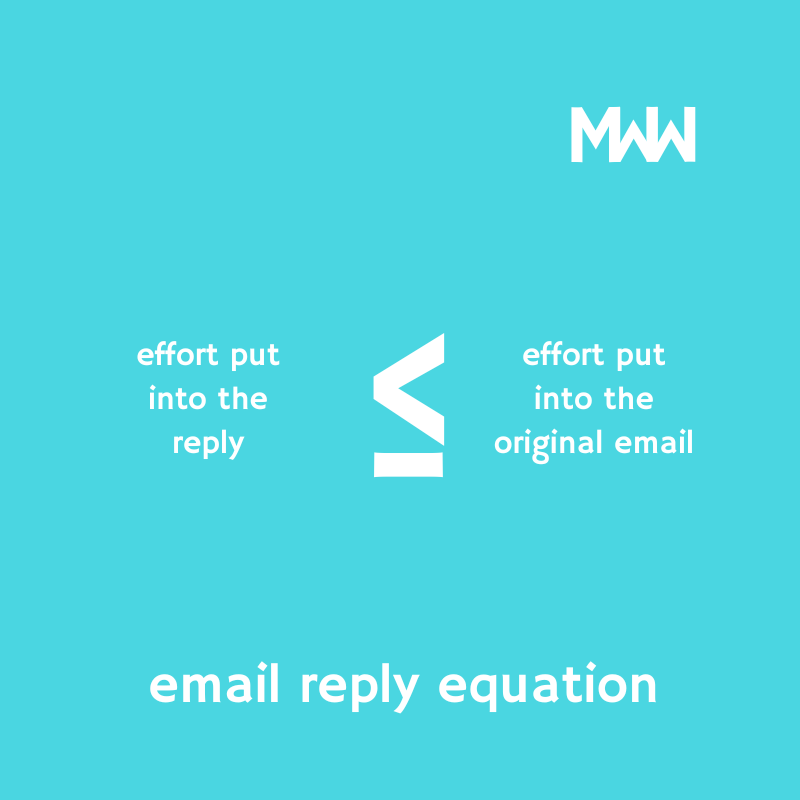Never Put More Effort Into Replying to an Email Than The Sender Put In

The current state of email is fraught with cold emails that are so close to spam they barely merit the title of cold email. I’m talking about emails that don’t mention a name, or maybe they call you “webmaster” followed by immediately asking you for something — time, content, services. They might not even be asking you for something that you offer. They might not use your name. They might use the wrong company name.
While I was writing this blog post, another one of those emails landed in my inbox. Earlier in my career, I treated emails with a certain reverence. If someone took the time to reach out, I took the time to reply.
As it stands, it takes very little effort on someone’s part to send an email and my inbox is now way more cluttered than it was 10 years ago. There are scraped lists of emails available through shady sources for less-than-reputable marketers and salespeople to use to send automated messages to you about their services.
The email reply equation is simple — never put more effort into replying to an email than the other person put into sending it.

Emails that don’t even use your first name? Glance and then probably delete.
Emails that copy pasta and don’t even mention your work? Don’t even glance — delete.
Emails that are just automated cold email spam? Immediately delete.
If someone took the time to write you a personalized or well-written email that isn’t a template, you might want to return the favor and write them a personalized email reply if you have time. Otherwise? Don’t put more time into your reply than that person put into reaching out to you.
This equation has helped me spend less time replying to emails that aren’t worth my time. Having a systematic approach also means I don’t feel guilty about not replying. As simple as it sounds, this simple equation takes away tedious decision-making which I hope you find as useful as I have.






Member discussion